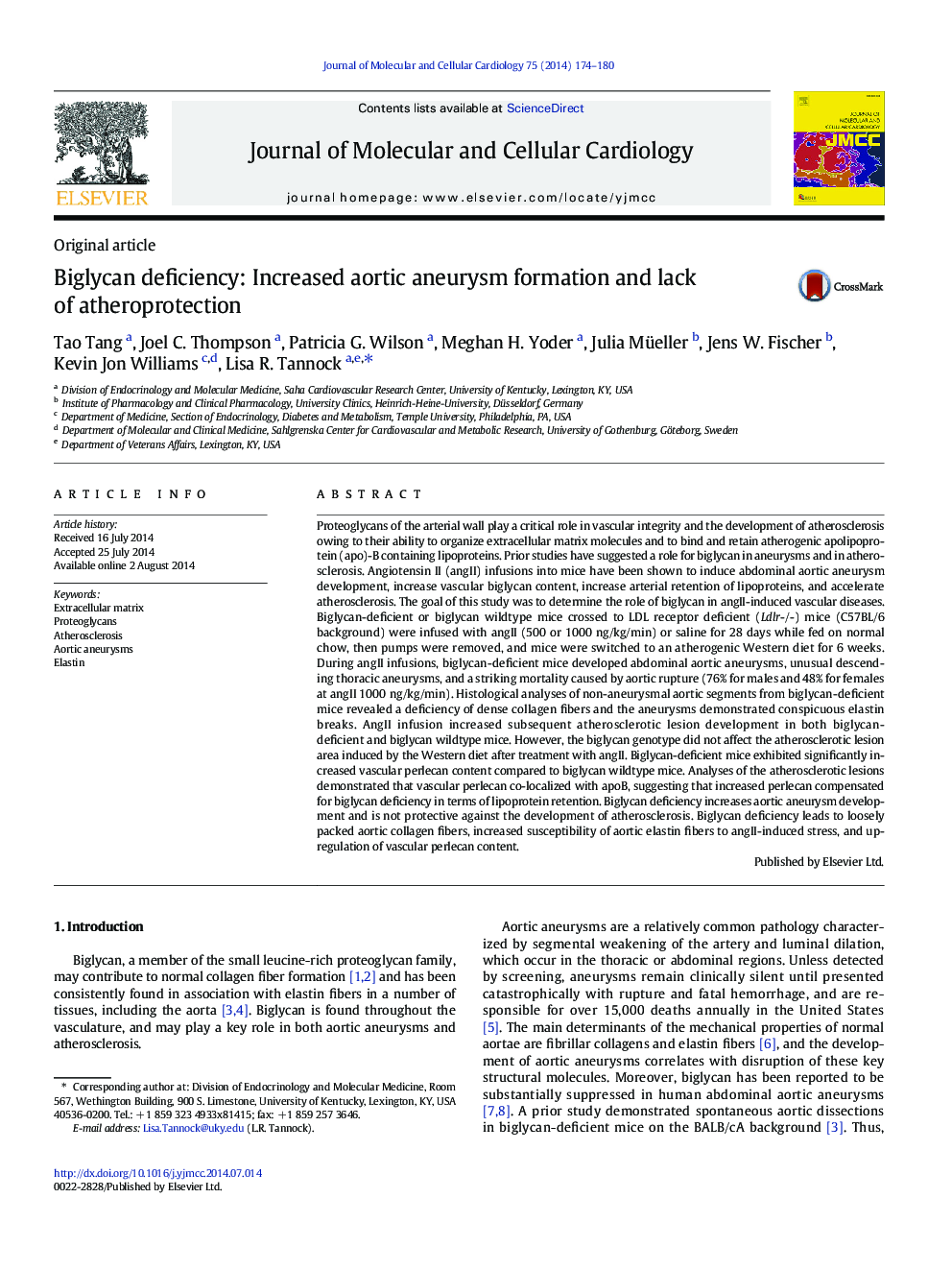| Article ID | Journal | Published Year | Pages | File Type |
|---|---|---|---|---|
| 8474679 | Journal of Molecular and Cellular Cardiology | 2014 | 7 Pages |
Abstract
Proteoglycans of the arterial wall play a critical role in vascular integrity and the development of atherosclerosis owing to their ability to organize extracellular matrix molecules and to bind and retain atherogenic apolipoprotein (apo)-B containing lipoproteins. Prior studies have suggested a role for biglycan in aneurysms and in atherosclerosis. Angiotensin II (angII) infusions into mice have been shown to induce abdominal aortic aneurysm development, increase vascular biglycan content, increase arterial retention of lipoproteins, and accelerate atherosclerosis. The goal of this study was to determine the role of biglycan in angII-induced vascular diseases. Biglycan-deficient or biglycan wildtype mice crossed to LDL receptor deficient (Ldlr-/-) mice (C57BL/6 background) were infused with angII (500 or 1000Â ng/kg/min) or saline for 28Â days while fed on normal chow, then pumps were removed, and mice were switched to an atherogenic Western diet for 6Â weeks. During angII infusions, biglycan-deficient mice developed abdominal aortic aneurysms, unusual descending thoracic aneurysms, and a striking mortality caused by aortic rupture (76% for males and 48% for females at angII 1000Â ng/kg/min). Histological analyses of non-aneurysmal aortic segments from biglycan-deficient mice revealed a deficiency of dense collagen fibers and the aneurysms demonstrated conspicuous elastin breaks. AngII infusion increased subsequent atherosclerotic lesion development in both biglycan-deficient and biglycan wildtype mice. However, the biglycan genotype did not affect the atherosclerotic lesion area induced by the Western diet after treatment with angII. Biglycan-deficient mice exhibited significantly increased vascular perlecan content compared to biglycan wildtype mice. Analyses of the atherosclerotic lesions demonstrated that vascular perlecan co-localized with apoB, suggesting that increased perlecan compensated for biglycan deficiency in terms of lipoprotein retention. Biglycan deficiency increases aortic aneurysm development and is not protective against the development of atherosclerosis. Biglycan deficiency leads to loosely packed aortic collagen fibers, increased susceptibility of aortic elastin fibers to angII-induced stress, and up-regulation of vascular perlecan content.
Related Topics
Life Sciences
Biochemistry, Genetics and Molecular Biology
Cell Biology
Authors
Tao Tang, Joel C. Thompson, Patricia G. Wilson, Meghan H. Yoder, Julia Müeller, Jens W. Fischer, Kevin Jon Williams, Lisa R. Tannock,
